For this month’s top 5, I’ve gone and named my top 5 books of geek – books that are off the beaten track, looking at science, maths, new ideas, and new worlds, or a bit niche or cult. It’s a fairly nebulous definition I know, but what’re ya gonna do?
What do you think? Any absolute howlers on here? Any sure-fire solid-gold classics that haven’t made the list? Let me know in the comments!
Flatland by Edwin A. Abbott
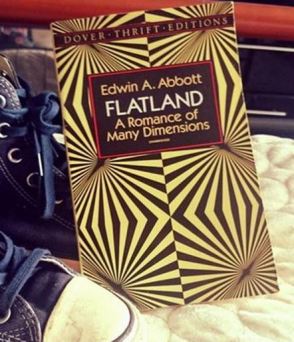
Kicking off with what is perhaps the strangest book on this list, Flatland uses geometry to explain to us that we can never be sure that we know what we think we know. Weird right? Set in a Flatland inhabited by squares, polygons and lines, A. Square (our narrator) starts to wonder if there’s more to life than just the one dimension.
Best of all, it’s got loads of cool diagrams throughout:
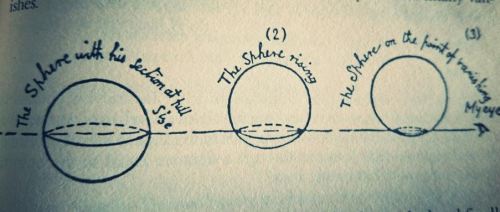
Yep, a book that looks at faith, gender, and class by using geometry was bound to end up on this list.
Godel, Escher, Bach: An Eternal Golden Braid by Douglas Hofstadter
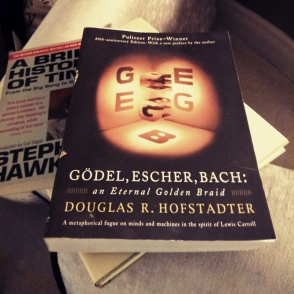
Probably the trickiest one on the list to explain. Hofstadter draws on themes from mathematician Kurt Godel, artist M.C. Escher, and composer Johan Sebastian Bach to show how cognition occurs in the brain. Super weird right? Anyway, it means you get neat illustrations alongside loads of data tables that don’t make sense. Like this:
It is madness. Or genius. Whatever it is, it’s definitely worth your time. It’s hard going though.
I, Robot by Isaac Asimov
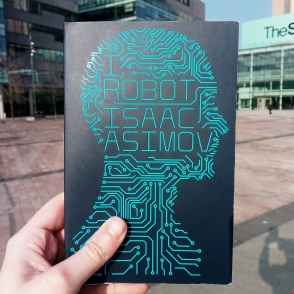
This one makes the list because it introduced the three laws of robotics – laws that govern how robots should interact with the world. Since we’re starting to make self-driving cars now, it seems like these laws are more relevant than ever:
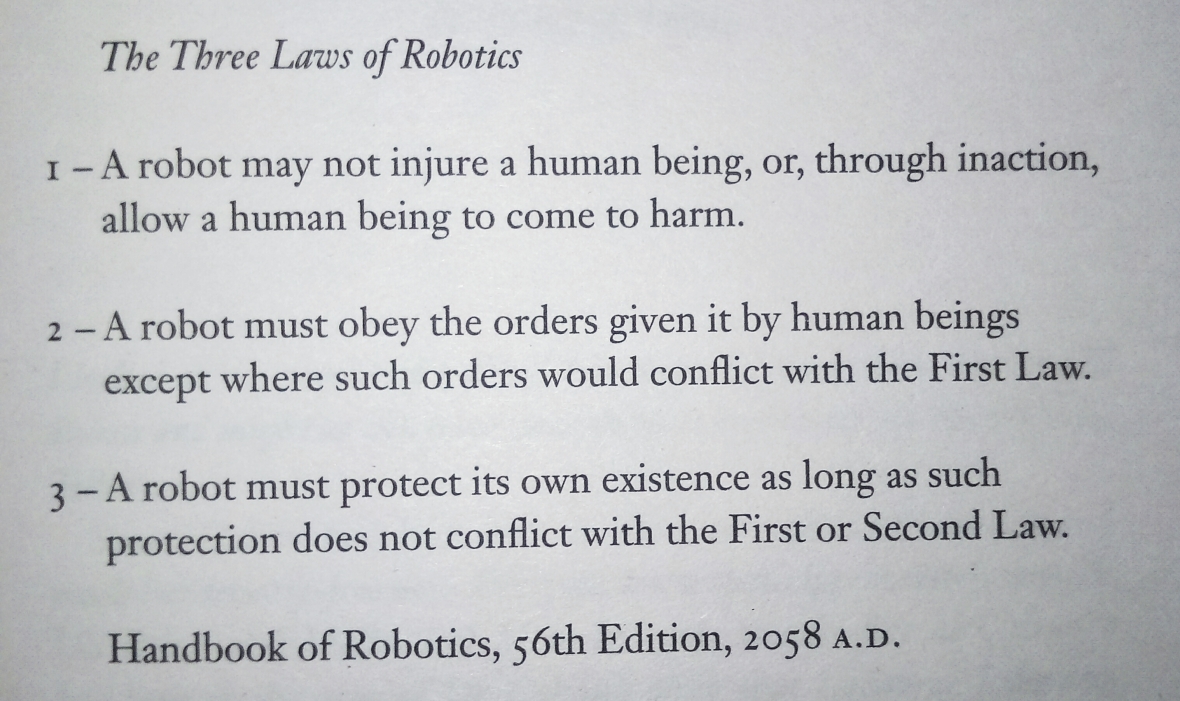
There’s more tucked away in here than the usual sci-fi fare though, asking how can we live with technology that will eventually surpass our own intelligence?
Fantastic stuff. And since a robot escaped from a lab the other day, I, Robot is probably a book that geeks everywhere should be paying attention to.
The Visual Display of Quantitative Information by Edward R. Tufte
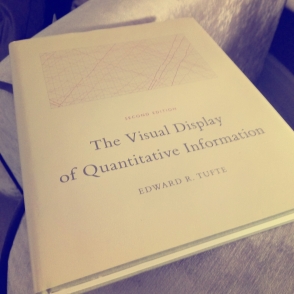
A bit of an odd inclusion here, but I got to decide what I meant by “Book of Geek” so it sits happily in the Top 5 – at least on my bookshelf.
Tufte’s mission is to help us all represent complicated data as simply as possible, with well designed charts, graphs and infographics. Tufte’s idea is that there should be the minimum amount of ink on a page – he’s got a whole equation to explain it, called the Data-Ink Ratio:
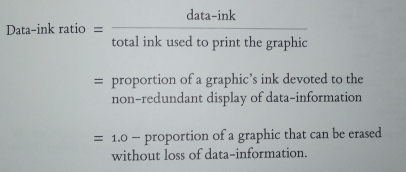
I like it because there’s a strange kind of beauty in some of these charts, like the one of Napoleon’s retreat from Moscow, or a train timetable, or the imports and exports between England, Denmark, and Norway:
Yep, if you want to know more about making charts pretty, then this is the one I’d recommend.
A Brief History of Time by Stephen Hawking
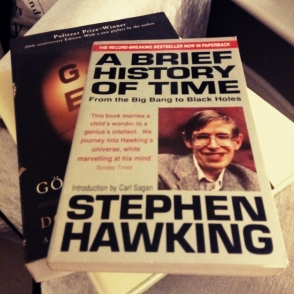
Yep, the Godfather of Geek himself takes up the last spot in my top 5 Book of Geek – Stephen Hawking’s A Brief History of Time.
This is Hawking’s attempt to explain why the universe happened, where it’s going and where it’ll end. I read an article once that said this was one of the most unfinished books on people’s bookshelves – I can see why, it’s tough going.
Still, it has only one equation in it (E=MC2 in case you’re wondering), and almost explains life, the universe and everything.
So what do you think? Agree or disagree? Have you read any of them – what did you think? Absolute tosh, or about right? What would be in your top 5 book of geek?
Let me know in the comments!





Omg this is so interesting! & Flatland is giving me Dr. Strange-ish vibes? In regards of multiple dimensions etc
LikeLiked by 1 person
Its not that strange, but strange enough for sure!
LikeLike
I love this post so much! I’ve been searching everywhere for some more geeky books 🙂 Been hearing a lot about Asimov’s work but the others one are def going in my TBR …ESPECIALLYY Godel, Escher, Bach LOL
LikeLiked by 1 person
Good luck – GEB is a toughie!
LikeLike
Well ✒ penned👌👍
LikeLiked by 1 person
Thanks @elizarudolf! Lovely to hear!
LikeLiked by 1 person
Yr welcome..😄
LikeLiked by 1 person
Yeah, well I’m annoyed because I searched for two of the books on this list hoping to find more like them, and turns out I’ve read all the others on your list too. Help me! Where next?? (GREAT list by the way.)
GEB and Tufte are just out-of-nowhere astounding.
I’d also say that for nerdy excitement, if you haven’t read The Martian, do yourself a favour. It’s scientifically juicy (and, moreover, accurate), but dropped unselfconsciously into a killer story.
LikeLike